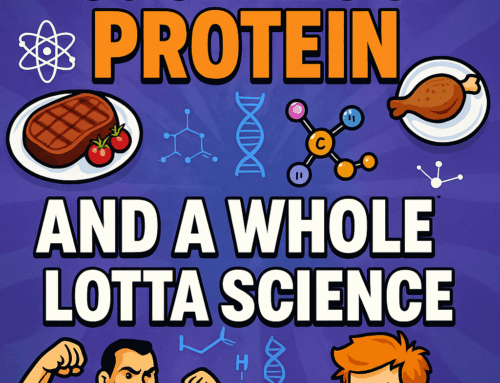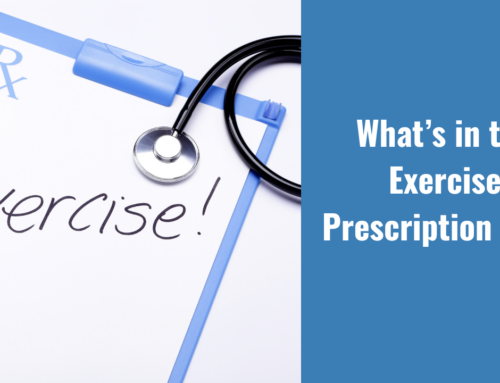Ketogenic Diets Suck for Speed and Power
More data just in case you needed it as a brand new study has found some shocking conclusions (1).
They took 16 young men and women, and tested them over 4 days under:
1) a low carb condition of less than 50 grams per day and
2) a high carb diet at 6 -10 grams / kg/ day aka- carb jackpot!
The exercise testing was Wingates on a bike and the yo-yo test. For Wingates -think of pedaling really fast, and then all of sudden some evil lab nerd drops the hammer on you by upping the resistance massively! Within about 10 -20 seconds, it feels like your quads were replaced with concrete. And no, the yo-yo test was not playing with yo-yos – it is an intermittent sprinting test.
The low carb keto group saw their power drop by 7% on Wingate test in addition to running 15% shorter distance on the yo yo test (1).
I can feel the keto krowd getting ready to pounce and cry.
“But these athletes were not keto adapted!”
To which I would agree, but how long do athletes need to be keto adapted?
Last I heard, the timeline keeps getting longer from a few weeks to a few months, now to a couple years. I do agree that the chronic adaptations are different and may be beneficial; however, ketones for a bioenergetic standpoint cannot create ATP (cellular fuel) at a fast enough rate to compete with carbohydrates. Plus we have metric piss-tons of data (techy terms) that carbs enhance performance. Read these and weep, keto power posers (2-23).
Keep in mind that while your keto athletes are working their way through keto flu and adapting to the keto diet, based on this study and other data (24-28), they are losing speed and power!
Oooops.
There better be one hell of a payoff at the end of that keto power loss train to make up for the lost training time.
Maybe the keto approach is ok for very long duration athletes; but we can debate that one later.
In the meantime, I am going to have some carbZ to keep my power up both in myself and the athletes I coach.
Summary- Too Long, Did Not Read
Newsflash – removing the main fuel for anaerobic exercise (high intensity) is not good for performance.
If a power drop of 7% does not matter to you, keto until your eyeballs turn yellow as butter.
But if speed and power matter to you, carbZ are your friend.
Pass me the poptarts.
Dr Mike
PS- I did NOT say “keto sucks for everything,” just that it is not great for high intensity work.
Keto Power Poo Poo References
- Wroble KA, Trott MN, Schweitzer GG, Rahman RS, Kelly PV, Weiss EP. Low-carbohydrate, ketogenic diet impairs anaerobic exercise performance in exercise-trained women and men: a randomized-sequence crossover trial. The Journal of sports medicine and physical fitness. 2019;59(4):600-7.
- M. S. Athletics and football. London: Longman’s, Green, and Co; 1887.
- Brooks GA, Mercier J. Balance of carbohydrate and lipid utilization during exercise: the “crossover” concept. J Appl Physiol (1985). 1994;76(6):2253-61.
- Hawley JA, Leckey JJ. Carbohydrate Dependence During Prolonged, Intense Endurance Exercise. Sports Med. 2015;45 Suppl 1:S5-12.
- King AJ, O’Hara JP, Morrison DJ, Preston T, King R. Carbohydrate dose influences liver and muscle glycogen oxidation and performance during prolonged exercise. Physiol Rep. 2018;6(1).
- Williams C, Rollo I. Carbohydrate Nutrition and Team Sport Performance. Sports Med. 2015;45 Suppl 1:S13-22.
- Burke LM, Hawley JA, Wong SH, Jeukendrup AE. Carbohydrates for training and competition. J Sports Sci. 2011;29 Suppl 1:S17-27.
- Bergstrom J, Hermansen L, Hultman E, Saltin B. Diet, muscle glycogen and physical performance. Acta physiologica Scandinavica. 1967;71(2):140-50.
- Sherman WM, Costill DL, Fink WJ, Miller JM. Effect of exercise-diet manipulation on muscle glycogen and its subsequent utilization during performance. Int J Sports Med. 1981;2(2):114-8.
- van Loon LJ, Greenhaff PL, Constantin-Teodosiu D, Saris WH, Wagenmakers AJ. The effects of increasing exercise intensity on muscle fuel utilisation in humans. The Journal of physiology. 2001;536(Pt 1):295-304.
- Impey SG, Hearris MA, Hammond KM, Bartlett JD, Louis J, Close GL, et al. Fuel for the Work Required: A Theoretical Framework for Carbohydrate Periodization and the Glycogen Threshold Hypothesis. Sports Med. 2018;48(5):1031-48.
- Burke LM, Cox GR, Culmmings NK, Desbrow B. Guidelines for daily carbohydrate intake: do athletes achieve them? Sports Med. 2001;31(4):267-99.
- Kerksick CM, Wilborn CD, Roberts MD, Smith-Ryan A, Kleiner SM, Jager R, et al. ISSN exercise & sports nutrition review update: research & recommendations. J Int Soc Sports Nutr. 2018;15(1):38.
- Gejl KD, Ortenblad N, Andersson E, Plomgaard P, Holmberg HC, Nielsen J. Local depletion of glycogen with supramaximal exercise in human skeletal muscle fibres. The Journal of physiology. 2017;595(9):2809-21.
- Hermansen L, Hultman E, Saltin B. Muscle glycogen during prolonged severe exercise. Acta physiologica Scandinavica. 1967;71(2):129-39.
- Dimaur S, Andreu AL, Bruno C, Hadjigeorgiou GM. Myophosphorylase deficiency (glycogenosis type V; McArdle disease). Current molecular medicine. 2002;2(2):189-96.
- Clark N. Nancy Clark’s sports nutrition guidebook. Champaign, IL: Human Kinetics; 2014.
- Bergstrom J. Percutaneous needle biopsy of skeletal muscle in physiological and clinical research. Scandinavian journal of clinical and laboratory investigation. 1975;35(7):609-16.
- Jeukendrup AE. Periodized Nutrition for Athletes. Sports Med. 2017;47(Suppl 1):51-63.
- Rodriguez NR, DiMarco NM, Langley S. Position of the American Dietetic Association, Dietitians of Canada, and the American College of Sports Medicine: Nutrition and athletic performance. Journal of the American Dietetic Association. 2009;109(3):509-27.
- Romijn JA, Coyle EF, Sidossis LS, Gastaldelli A, Horowitz JF, Endert E, et al. Regulation of endogenous fat and carbohydrate metabolism in relation to exercise intensity and duration. The American journal of physiology. 1993;265(3 Pt 1):E380-91.
- Pochmuller M, Schwingshackl L, Colombani PC, Hoffmann G. A systematic review and meta-analysis of carbohydrate benefits associated with randomized controlled competition-based performance trials. J Int Soc Sports Nutr. 2016;13:27.
- Stellingwerff T, Cox GR. Systematic review: Carbohydrate supplementation on exercise performance or capacity of varying durations. Applied physiology, nutrition, and metabolism = Physiologie appliquee, nutrition et metabolisme. 2014;39(9):998-1011.
- Pinckaers PJ, Churchward-Venne TA, Bailey D, van Loon LJ. Ketone Bodies and Exercise Performance: The Next Magic Bullet or Merely Hype? Sports Med. 2017;47(3):383-91.
- Scott JM, Deuster PA. Ketones and Human Performance. Journal of special operations medicine : a peer reviewed journal for SOF medical professionals.17(2):112-6.
- Evans M, Cogan KE, Egan B. Metabolism of ketone bodies during exercise and training: physiological basis for exogenous supplementation. The Journal of physiology. 2017;595(9):2857-71.
- O’Malley T, Myette-Cote E, Durrer C, Little JP. Nutritional ketone salts increase fat oxidation but impair high-intensity exercise performance in healthy adult males. Applied physiology, nutrition, and metabolism = Physiologie appliquee, nutrition et metabolisme. 2017;42(10):1031-5.
- Burke LM. Re-Examining High-Fat Diets for Sports Performance: Did We Call the ‘Nail in the Coffin’ Too Soon? Sports Med. 2015;45 Suppl 1:S33-49.




Leave A Comment